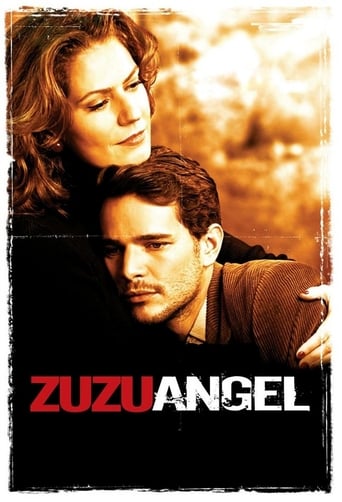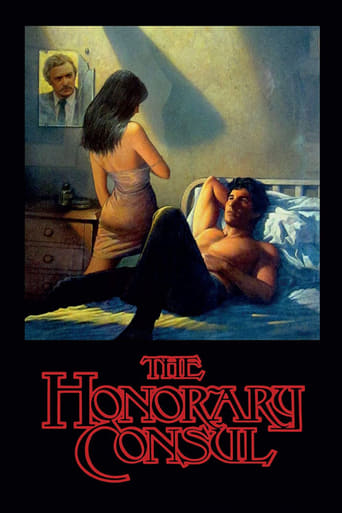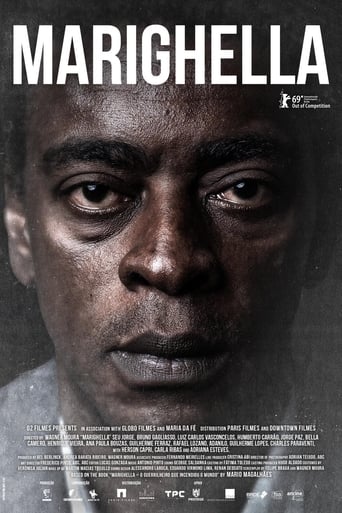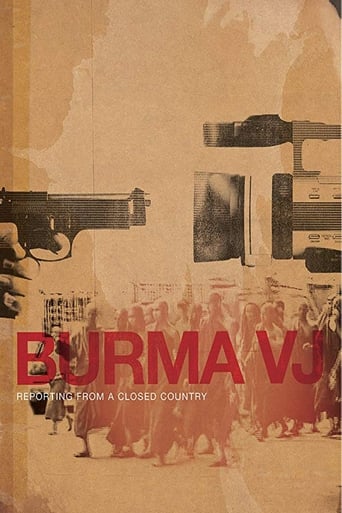Best movies like AI-5 - O Dia que Não Existiu
A unique, carefully handpicked, selection of the best movies like AI-5 - O Dia que Não Existiu Starring Paulo Markun, Márcio Moreira Alves, Maurício Branco, Mário Covas, and more. If you liked AI-5 - O Dia que Não Existiu then you may also like: The Year My Parents Went on Vacation, Zuzu Angel, Rio 2096: A Story of Love and Fury, Jango, They Don't Wear Black Tie and many more popular movies featured on this list. You can further filter the list even more or get a random selection from the list of similar movies, to make your selection even easier.
Documentary about a political episode during the Brazilian military dictatorship, which resulted in the issue of the Institutional Act #5 (AI-5), abolishing freedom of opinion in Brazil, and marking the transition to the toughest period of violation of human rights in the country. The episode was the Congress Assembly on December 12th, 1968, in which its members denied permission to punish congressman Márcio Moreira Alves, as was the Government's wish.
You may filter the list of movies on this page for a more refined, personalized selection of movies.
Still not sure what to watch click the recommend buttun below to get a movie recommendation selected from all the movies on this list
Zuzu Angel
Covering the last years of the famous Brazilian fashion designer in her doomed quest for justice, Zuzu Angel follows the case of her activist son Stuart's arrest, torture, murder, and subsequent corpse disposal by the military forces in early 1970s Rio de Janeiro, during the darkest era of Brazilian military regime and media censorship.
Rio 2096: A Story of Love and Fury
“Rio 2096 – A Story of Love and Fury” is an animated film that portrays the love between an immortal hero and Janaína, the woman he has been in love with for 600 years. As a backdrop to the romance, the feature highlights four phases of Brazilian history: colonization, slavery, the Military Regime and the future, in 2096, when there will be a war for water.
They Don't Wear Black Tie
Otavio is an idealistic union leader trying to organize workers at a factory to resist the company's exploitative practices. His son, Tião, one of the employees, is more of a realist and doesn't want to risk losing his job by striking. This clash of perspectives puts the father and son at odds. Fortunately, Tião's mother, Romana, is on hand to act as a moderator between the two opinionated men.
Four Days in September
Fernando, a journalist, and his friend César join terrorist group MR8 in order to fight Brazilian dictatorial regime during the late sixties. Cesare, however, is wounded and captured during a bank hold up. Fernando then decides to kidnap the American ambassador in Brazil and ask for the release of fifteen political prisoners in exchange for his life.
The Honorary Consul
Set in a small politically unstable Latin American country, the story follows the half English and half Latino Dr. Eduardo Plarr, who left his home to find a better life. Along the way he meets an array of people, including British Consul Charley Fortnum, a representative in Latin America who is trying to keep Revolution from occurring. He is also a remorseful alcoholic. Another person the doctor meets is Clara, whom he immediately falls in love with, but there is a problem: Clara is Charley's wife.
Olga
Based upon the true story of Olga Benário, the German-born wife of Brazilian communist leader Luís Carlos Prestes. During the dictatorship of Getúlio Vargas (1930-1945) she was arrested and sent to Nazi Germany, where she was put to death in a concentration camp. After World War II began, Vargas decided to uphold the Allies.
To Kill a Stranger
Cristina Carver (Angelica Maria) finds herself in dire straits after she arrives to spend some time with her TV-reporter husband (Dean Stockwell) who is visiting a Latin American country run by a military dictator. After a car accident one day, Cristina brings the helpful Col. Kostik (Donald Pleasence) home and then kills him in self-defense when he violently attempts to rape and murder her. Terrified, she covers up her act and hides the body, yet in spite of her husband's efforts to protect her, a local police detective starts to figure out what really happened.
Marighella
Afro-Brazilian poet and politician, the legendary Carlos Marighella. Driven to fight against the erosion of civil and human rights following the CIA-backed military coup of 1964 and the brutal, racist right-wing dictatorship that followed, the revolutionary leaves behind his wife and son to take up arms, becoming a notorious enemy to the power structure.
Hércules 56
Documentary featuring contemporary interviews with 5 of the revolutionary activists who kidnapped US ambassador Charles Embrick in August 1969 in Rio de Janeiro and some of the political prisoners who were freed from prison in exchange of the ambassador's liberty and flown out of Brazil to Mexico in an army cargo airplane "Hércules 56".
400 Against 1: A History of Organized Crime
The story of William da Silva Lima, the last survivor of the group that founded the Comando Vermelho at the end of the 1970s. It shows him living together with the political prisoners incurred under the same National Security Law and his leadership in the Ilha Grande Prison creating a type of unheard of conduct and solidarity in the Brazilian prisons. The film goes on to tell of the group's actions on the streets of Rio de Janeiro during the beginning of the 80s when they irritated the police with their daring robberies, as well as portraying the surprising love story between William and Tereza. The narrative weaves its way between the intimate conflict and the spectacular assaults and escapes.
O Bom Burguês
True story of Brazilian bank clerk who supplied money for the guerrilla fighting against the military dictatorship of the 70s. When he changes his disguise, he gets involved with high society, and with industrialists who were financing repression to the groups he stood for.
Getulio
The movie depicts the political crisis that led to the suicide of president Getúlio Vargas, in the 19 days that preceded August 24, 1954. The crisis began with the attempted assassination of journalist and politician Carlos Lacerda in August 5, 1954, at rua Toneleros, Rio de Janeiro, in which Major Vaz was assassinated instead. Investigations pointed to Gregório Fortunato, chief of Vargas' personal guard, as the orderer of the frustrated assassination. This incident was one of the most importants in the history of Brazil.
Dear Ambassador
The extraordinary story of Luiz Martins de Souza Dantas, who served as Brazilian Ambassador to Paris during WWII. A largely unsung hero, he defied his own government’s orders by granting hundreds of unauthorised visas to Jews and others facing imminent capture and death.
Heart and Guts
Financial problems in a religious school for girls force the government to interfere. While waiting in the conference hall to communicate the fact to the school administrators, the intervenor falls asleep and a crazy dream begins, involving teachers, students and strange characters.
Beyond Citizen Kane
Beyond Citizen Kane (1993) is a British documentary film directed by Simon Hartog, produced by John Ellis, and broadcast on Channel 4. It details the dominant position of the Rede Globo media group in the Brazilian society, discussing the group's influence, power, and political connections.[2] Globo's president and founder Roberto Marinho came in for particular criticism, being compared with fictional newspaper tycoon Charles Foster Kane, created by Orson Welles for the 1941 film Citizen Kane. According to the documentary, Marinho's media group engages in the same Kane wholesale manipulation of news to influence the public opinion.
Histories of Hunger in Brazil
Histories of Hunger in Brazil is a documentary that sets a timeline of hunger in the country. From Colonial Brazil, where the seeds of social inequalities were planted, to the recent public policies that culminated with Brazil finally exiting UN official World Map of Hunger, we portray how the confrontation of this evil on the part of the society and of the government took place.
Two Autumns in Paris
A striking political activist and refugee from Paraguay escapes to Paris and falls in love with a rich law student changing their lives forever. The beauty of their love is challenged by a fervent devotion to fighting for a cause.
Hunger for Love
An extended research tour of US university film programs introduced dos Santos to the American avant-garde filmmakers, among them Jonas Mekas and Stan Brakhage, who would directly inspire his formally radical adaptation of an allegorical short story about adultery and colonialism by Guilherme de Figueiredo. Filmed in both Manhattan and Brazil and set against the background of the Vietnam War and its protests, Hunger for Love uses a rigorously abstract soundtrack and narrative structure to evoke the acute paranoia of the period building up to the December 1968 military coup that tipped Brazil perilously close to a conservative dictatorship. With its harsh critique of the decadent tendencies of the Sixties counterculture, Hunger for Love offers a key expression of the self-consciously “ideological” phase of Cinema Novo. -Harvard Film Archive
Resistance
Brazil, 1961. In the underground of the Piratini Palace, the governor of Rio Grande do Sul, Leonel Brizola, awaits a bombing by the Brazilian armed forces. The country is on the verge of a civil war, following the resignation of president Jânio Quadros and the movement to keep vice-president João Goulart from taking office. Using the radio transmitter from his improvised bunker, Brizola sets up the Legality movement, to ensure Goulart's right to the presidential chair. Caught in the crossfire, two brothers who are in love with the same woman unite to fight alongside Brizola.
Our Children
Vera, who fought in the armed left-wing movements against the Brazilian military dictatorship, has lived in multiple South American countries. Her daughter Tânica has been married to another woman for fifteen years, and they're about to have their first child.
Garden of War
Edson is having an affair with a left-wing aspiring movie director during Brazil's military dictatorship years. He tries to get some easy money for her film, but ends up being arrested and tortured as his torturers suspect he's involved in a plot to overthrow the military government.
Real: The Plan Behind History
In May 1993, Brazil experienced one of the worst economic crises in its history. The government then decides to set up a real task force to solve the problem. Confined to a bunker as a way of shielding the operations of growing political pressures, the special economic team will have to do its best to reach agreement and create the Plano Real.
How Nice to See You Alive
Four years after a military coup overthrew the Brazilian government in 1964, all civil rights were suspended and torture became a systematic practice. Using a mix of fiction and documentary this extraordinary film is a searing record of personal memory, political repression and the will to survive. Interviews with eight women who were political prisoners during the military dictatorship are framed by the fantasies and imaginings of an anonymous character, portrayed by actress Irene Ravache.
The Patient
The true story of Tancredo Neves, the first civilian president of Brazil after a 20-year military dictatorship, and the infamous hospitalization which led to his death before he ever managed to take office.
Hoje
Former political activist receives compensation from the Brazilian government for the disappearance of her husband, victim of the repression triggered by the Brazilian military dictatorship. With the money, she can buy her an apartment and free herself from this dreadful condition she lived for decades. At the moment of moving to the new home, however, a visit arises that forces her to review her entire life.
Pelé
Against the backdrop of a turbulent era in Brazil, this documentary captures Pelé's extraordinary path from breakthrough talent to national hero. Mixing rare archival footage and exclusive interviews, this documentary celebrates the legendary Brazilian footballer who personified football as art.
The Edge of Democracy
A cautionary tale for these times of democracy in crisis—the personal and political fuse to explore one of the most dramatic periods in Brazilian history. With unprecedented access to Presidents Dilma Rousseff and Lula da Silva, we witness their rise and fall and the tragically polarized nation that remains.
Tickling Giants
The Arab Spring in Egypt: From a dictator to free elections, back to a dictatorship. One comedy show united the country and tested the limits of free press. This is the story of Bassem Youssef, a cardiologist turned comedian, the Jon Stewart of Egypt, and his show "The Show".
Burma VJ: Reporting from a Closed Country
Going beyond the occasional news clip from Burma, the acclaimed filmmaker, Anders Østergaard, brings us close to the video journalists who deliver the footage. Though risking torture and life in jail, courageous young citizens of Burma live the essence of journalism as they insist on keeping up the flow of news from their closed country.
Chile: Hasta Cuando?
A portrait of a brutal Pinochet military dictatorship made during a three month visit to Chile in 1985 by David Bradbury. The footage reveals a country torn with civil strife and political unrest; military intimidation of the population; indiscriminate arrests: murder torture and disappearances were facts of Chilean life.








































The Year My Parents Went on Vacation
A boy is left alone in a Jewish neighborhood in the year of 1970, where both world cup and dictatorship happen in Brazil.